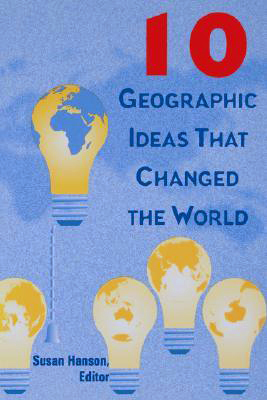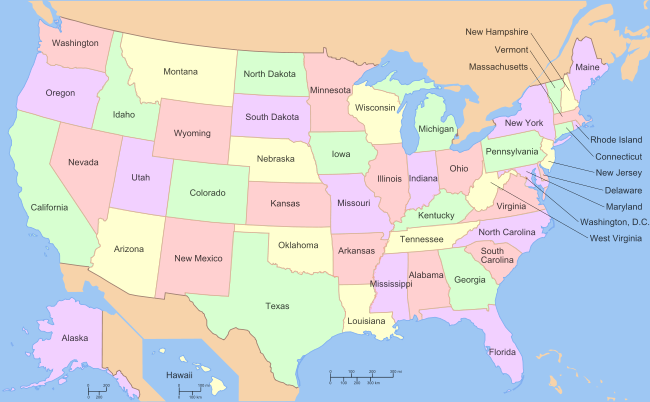While there is an adage that there is no such thing as bad press, geographers are fed up with the cliché that Geography is simply the study of maps. Sure, the word itself is from the Greek geographia – “description of the earth’s surface,” from geo- “earth” + -graphia- “graphic” or “description.” But today’s definition ain’t your daddy’s anymore!
The incentive for this posting is a recent UCSB article by the new UCSB web site, The Current. While this news service is admirable in terms of its goals, it raised the hackles of several geographers with the title of one of its first publications: “Where in the World is Carmen Sandiego?” Admittedly, that was a clever title for a well-written article about Geography Awareness Week, but, unfortunately (unless you were familiar with the edutainment series), it also played into the cliché of Geography being something to do with naming places on a map and underscored how pervasive this misconception is.
To be fair, The Current article went on to describe several aspects of the modern discipline of Geography which transcend simply naming places, and it ended by commenting that Geography “enables us all to be intrepid explorers in our own way.” Geography once was considered the “Queen of Science” (next to the King, Philosophy) when the world was relatively unexplored, but as that state of affairs waned, so did the discipline. “Modern geography evolved from the works of prominent German geographers Alexander von Humboldt and Carl Ritter. Those two geographers felt that geography should be redirected away from voluminous tomes of directionless data and toward a “new scientific geography,” one that focused on the region for the ultimate understanding of earth. Thereafter, geography as a distinct discipline in education, slowly deteriorated as specialization grew in the various scientific fields” (Keith Bell).
Today, Geography has risen like the phoenix: “Geography embraces every fact on earth: every aspect of the composition, occupation, and history of the planet. It is the monitor of our abuse of our environment and our guide to its preservation. As such, geography knows no intellectual boundaries. It deserves to sit at the center of any liberal education. … Geography should be encouraged to seize the central fortress, ejecting both pure science and that grossly over-promoted intellectual exercise called mathematics. Geography should stand alone on the scientific pedestal, joined only with its one educational equal, the study of the human spirit in English language and literature. Geography is queen of the sciences, parent to chemistry, geology, physics, and biology, parent also to history and economics” (excerpt from the London Times, June 1990; Ibid.)
However, as Geographer Susan Hanson points out, “Few Americans seem able to forget the ‘geography’ they encountered in the fourth or fifth grade: The challenge of facing a blank outline map of the United States with the charge to name the states, a map with wavy lines on it with the assignment to identify the rivers, or a map of linear lumps with the job of to write names on mountain ranges. The tenacity of these memories – correctly associated with geography as we encountered it in elementary school – together with the total absence of any further instruction under the rubric of geography in junior high or high school (and often college as well), places us who are professional geographers in the position of frequently having to define our chosen field. Why would fully grown adults freely choose to spend their days labeling states, rivers, and mountain ranges? What do we do with our time once all the blank maps are filled in? The same memories seem also to require us frequently to defend our chosen field: Why does the world need geography? What have geographers really done for the world (beyond labeling all those features on maps)?” (Ibid.).
Keith Bell concludes his article by stating, “This subject matter is too important to be dismissed in the offhanded way it has been over the last few decades. But the onus lies with the professional geographers to get their message out. Much of the literature produced by those individuals are for like-minded persons within the discipline and are useless to any layperson. In essence, the scientific geographic community resides on an island unconnected to the mass of people on the mainland. Thus, their studies are rendered worthless for the people who actually need the education the most. So we too have work to do” (Ibid.). And that’s why Geography Awareness Week and the outreach efforts of the UCSB Department of Geography are so important – and why postings like this one are made.




